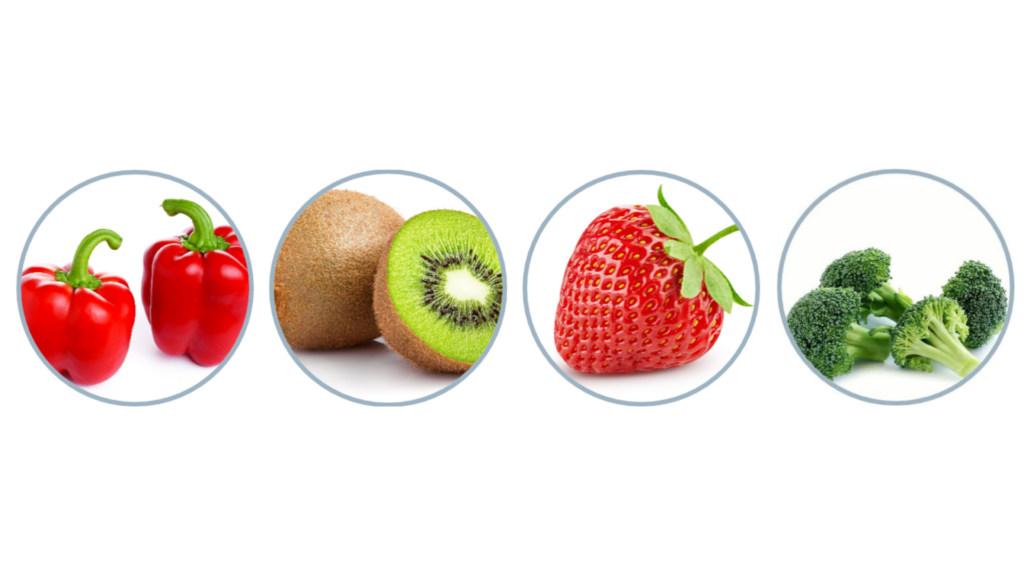When seasons start to change, you might be more focused on how warm your coat will be or how powerful your air-conditioning unit is, depending on where in the world you live.
However, what you put into your body and onto your skin during seasonal changes, is equally important. Nutrients help your body to function the way it should and protects it from threats such as germs and viruses.
They help to strengthen bones, heal wounds and bolster your immune system. They also convert food into energy and repair cellular damage. One of the most important vitamins for the skin and body is Vitamin C.
Vitamin C, also known as Ascorbic Acid, is necessary for the growth, development and repair of all body tissues. It is involved in many body functions, including formation of collagen, absorption of iron, the proper functioning of the immune system, wound healing and the maintenance of cartilage, bones and teeth.

YOUR SKIN NEEDS TOPICAL VITAMIN C
Just as Vitamin C is an essential part of your diet, it is also an important step in your skincare routine. The human body does not produce its own Vitamin C, but instead, relies on obtaining it through nutritional and topical applications. Key Vitamin C benefits for the skin include neutralizing free radicals and stimulating collagen production.

KEY FACTS ABOUT VITAMIN C
- Vitamin C rebuilds the skin cells and is needed for collagen metabolism
- Vitamin C increases skin elasticity and reduces the formation of lines and wrinkles
- May assist in the treatment of acne scarring, resulting in a smoother complexion
- Vitamin C is water soluble, so it is almost impossible to overload your system. If you do happen to consume too much of the vitamin at once, you will just excrete it by urination
- Vitamin C is not exclusively found in citrus fruits. Although citrus fruits were first used to treat scurvy, this vitamin is not limited to oranges, lemons, limes, etc. It is actually found in higher concentration outside of the citrus family. In fact, guava ranks to be number one in Vitamin C.
Here are a few other surprising fruits and vegetables that contain higher concentrations of Vitamin C than the citrus family:

THE IMPORTANCE OF VITAMIN C FOR COLLAGEN FORMATION
- Fibroblast cells produce procollagen, the precursor to collagen
- The procollagen, together with Vitamin C, forms the collagen triple helix
- The multiple collagen triple helix “glues” together, forming a cross-linked micro fibril and then, a macro fibril
- The macro fibrils are organized into bundles to create the collagen fibres

NOT ALL VITAMIN C’S ARE CREATED EQUAL
There are numerous Vitamin C products available on the market and the types of Vitamin C used in skincare formulations matter. With such a large variety, choosing the most results-driven form of Vitamin C for your client’s skin concerns is vital.
Forms of Topical Vitamin C:
L-Ascorbic Acid
- This is the most biologically active and well-studied form of Vitamin C
- Formulations containing Vitamin C in L-Ascorbic Acid form are impractical and extremely unstable
- High susceptibility to oxidation, especially under aerobic conditions catalyzed by heavy metals or Copper, in the presence of light
- To rectify that problem, Ascorbyl Palmitate, which is highly lipophilic, and the Magnesium Ascorbyl Phosphate, a water-soluble, inorganic acid ester, is incorporated in the formulations for improved stability
Sodium Ascorbyl Phosphate and Ascorbyl Palmitate
- These are water or oil-soluble vitamins to ensure complete anti-antioxidation
Magnesium Ascobyl Phosphate
- Water-soluble derivative of Vitamin C that is non-irritating and more stable that crystalline Vitamin C
(L-Ascorbic Acid)


Recent Comments